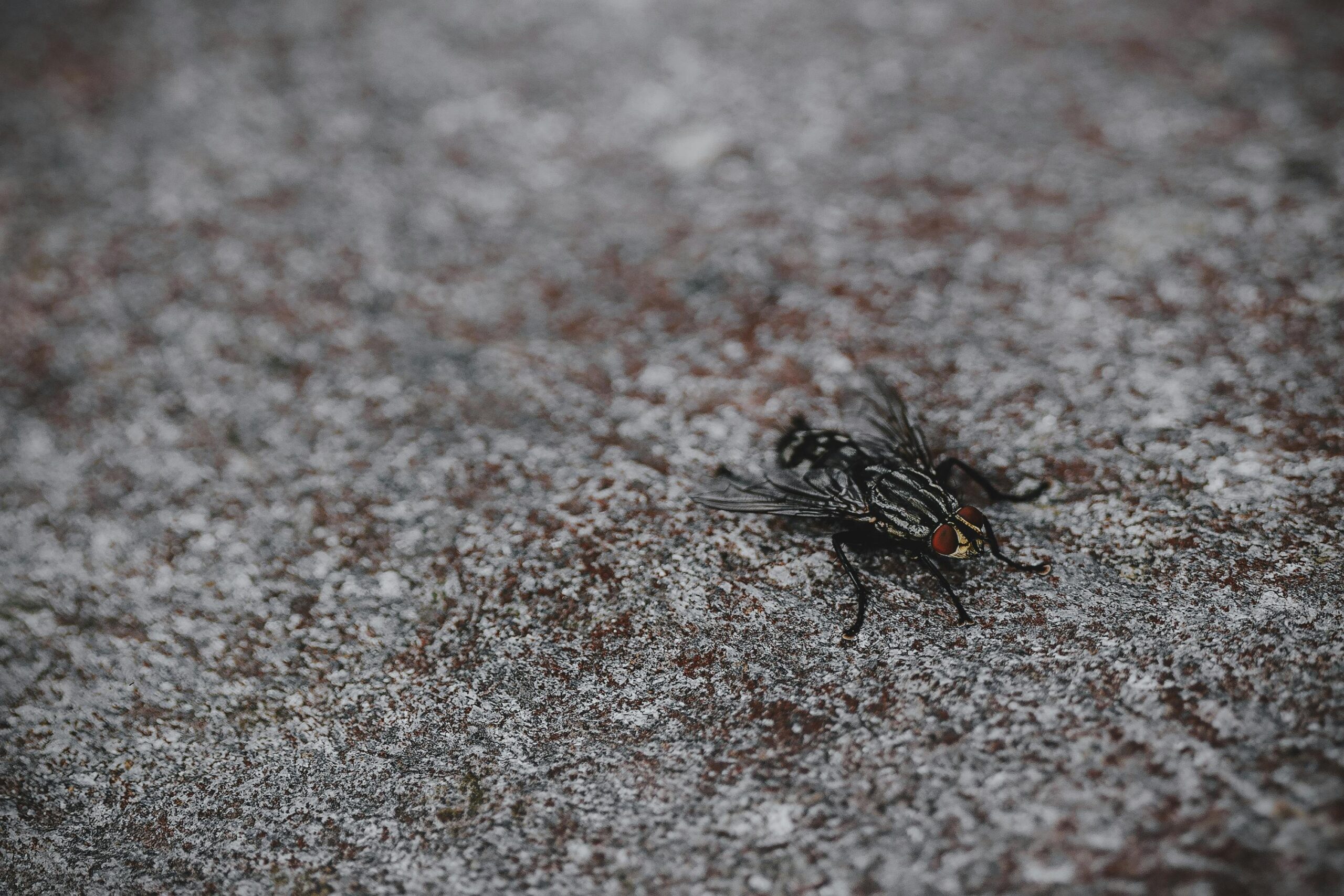Flies can quickly transform a comfortable home into an uncomfortable environment, buzzing around and contaminating food. Understanding how to effectively eliminate flies and prevent their return is crucial for maintaining a healthy living space. This guide offers practical advice, natural remedies, and DIY solutions to help you get rid of flies at home, ensuring your space remains fly-free.
Understanding Why Flies Invade Homes
Flies are attracted to homes for various reasons, primarily seeking food, moisture, and warmth. Common species such as house flies, fruit flies, and drain flies each have specific preferences that can lead them indoors.
Common Fly Species Found Indoors
- House Flies: Attracted to decaying organic matter and food waste.
- Fruit Flies: Drawn to overripe fruits and vegetables.
- Drain Flies: Thrive in moist environments like drains and garbage disposals.
Quick Assessment: Identifying the Source of Flies
Before implementing any fly control measures, it’s essential to identify where they are coming from. Use the following checklist to determine potential fly sources in your home:
- Check for open food containers or spills in the kitchen.
- Inspect garbage cans for loose lids or overflows.
- Look for standing water or damp areas in bathrooms and basements.
- Examine windows and doors for gaps or tears in screens.
- Assess any decaying organic matter outside, such as compost piles or pet waste.
Immediate Actions: How to Get Rid of Flies Fast
If you need to act quickly, several immediate strategies can help eliminate flies from your home.
Cleaning Up
Start by cleaning areas where flies are commonly found. This includes:
- Wiping down surfaces with a vinegar solution.
- Emptying and cleaning garbage bins regularly.
- Storing food in airtight containers.
Using Fans
Flies are weak fliers. Setting up fans in areas where flies are problematic can help keep them at bay.
Natural Remedies to Eliminate Flies
Natural remedies are effective, eco-friendly alternatives for fly control. Here are five actionable remedies:
Vinegar and Dish Soap Trap
Materials:
- Apple cider vinegar
- Dish soap
- A bowl or jar
Instructions:
- Pour apple cider vinegar into the bowl, filling it about halfway.
- Add a few drops of dish soap to break the surface tension.
- Place the trap where flies are most active.
Essential Oil Spray
Materials:
- Water
- Essential oils (eucalyptus, peppermint, or lavender)
- Spray bottle
Instructions:
- Mix 10-15 drops of essential oil with water in a spray bottle.
- Spray around windows, doors, and other entry points.
Herb Sachets
Materials:
- Dried herbs (basil, mint, or bay leaves)
- Small fabric bags or cheesecloth
Instructions:
- Fill small bags with dried herbs.
- Place them in areas where flies are a nuisance.
Fruit Fly Trap
Materials:
- Ripe fruit (banana or apple)
- Plastic wrap
- Rubber band or string
Instructions:
- Place the ripe fruit in a bowl.
- Cover the bowl with plastic wrap and secure it with a rubber band.
- Poke small holes in the wrap to allow flies to enter.
Cayenne Pepper Spray
Materials:
- Water
- Cayenne pepper
- Spray bottle
Instructions:
- Mix one tablespoon of cayenne pepper with water in a spray bottle.
- Spray around entry points and areas where flies are seen.
DIY Traps and Repellents for Flies
Creating your own traps can be an effective way to control fly populations. Here are three DIY trap examples:
Sticky Fly Paper
Materials:
- Brown paper bags
- Honey or syrup
Instructions:
- Cut the paper bags into strips.
- Coat them with honey or syrup.
- Hang them in areas where flies gather.
Wine Bottle Trap
Materials:
- Empty wine bottle
- Fruit or sugar water
Instructions:
- Add fruit or sugar water to the bottom of the bottle.
- Place the bottle in a fly-prone area.
- Flies will enter but have difficulty escaping.
Garbage Can Trap
Materials:
- Plastic container
- Vinegar
- Plastic wrap
Instructions:
- Fill the container with vinegar.
- Cover it with plastic wrap and poke holes in the top.
- Set it near garbage cans or compost areas.
Chemical Solutions: When to Use Store-Bought Products
While natural remedies are effective, there are times when chemical solutions may be necessary. Consider the following:
- Choose insect sprays specifically designed for flies.
- Use fly baits that attract and kill flies.
- Follow all safety instructions on the product label.
Long-Term Prevention: Keeping Flies Out for Good
Preventing flies from entering your home is vital for long-term control. Here are practical tips:
Fly Prevention Tips for Kitchens
- Keep food sealed and stored properly.
- Regularly clean countertops and floors to eliminate crumbs.
- Use tight-fitting lids on trash cans.
Fly Prevention Tips for Bathrooms
- Fix any leaks to eliminate moisture.
- Clean drains regularly to remove organic material.
- Ensure windows and vents are well-screened.
Fly Prevention Tips for Outdoor Spaces
- Keep outdoor trash cans covered and clean.
- Remove pet waste promptly.
- Use plants like basil and marigold to deter flies.
Common Mistakes to Avoid in Fly Control
To effectively manage fly populations, avoid these common pitfalls:
- Neglecting to identify the source of the flies.
- Using ineffective traps or remedies.
- Failing to maintain cleanliness in fly-prone areas.
When to Call a Professional Exterminator
Sometimes, fly infestations are too severe for DIY solutions. Consider contacting a professional if:
- Flies persist despite your best efforts.
- You notice an unusual number of flies in one area.
- Health concerns arise due to potential contamination.

